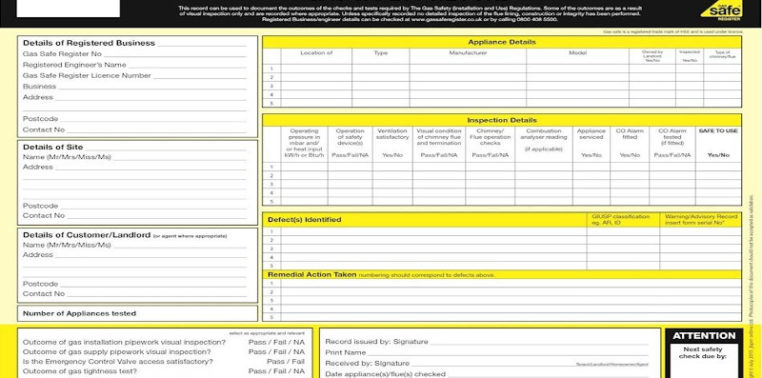
Residential properties to let in the UK are required by law to get a gas safety certificate for their places each year. Knowing the various aspects of this procedure, such as the landlord gas safety certificate cost can help you make any needed preparations. Failure to get this certificate could result in severe fines.
If you’re renting residential property in the UK, you’re required by law to provide a gas safety inspection certificate on an annual basis other than that you are also required to provide a valid energy performance certificate in London. This accreditation is given after the inspection of all gas appliances within the premises, to ensure they are in working condition. The law was set in place to ensure all domestic residences upheld the safety standards in the gas sector. The certificate also allows your tenant to know they are living in a safe and secure environment.
Obtaining information about what to expect during these inspections can help the process go much faster. It can also help you ensure all your appliances maintain the required operational standards, as instructed by the guidelines in this sector. You can find out about elements such as the landlord gas safety certificate cost, the various processes and procedures involved, and any additional requirements during the inspection. This information can be retrieved by either contacting your gas servicing provider or researching the topic online.
We price based upon the number of gas appliances in the property and our simple list is below:
1. Gas Appliance £49
2. Gas Appliances £59
3. Gas Appliances £69
Note – Gas appliances are cooker, boiler, hob and fireplace
Some of the elements you should consider when getting a gas safety inspection certificate include:
During the inspection, you will be responsible for any gas appliances that come with your premises, such as boilers and hot water cylinders. You’re not responsible for the inspection of any devices belonging to your tenants, such as stoves and cookers. All the items inspected should also be located within the residential area of a compound. So if you have a gas appliance situated in a section that is designated as non-residential, then it doesn’t necessarily have to be inspected. However, it’s recommendable to check all devices during the evaluation to ensure everything is okay.
For you to receive a certificate, the inspection must be conducted by a gas safe registered engineer to hold any official format. Your engineer can provide you with a card detailing his name, company, and capable skills. Checking to ensure that the certification firm you choose is actually registered with gas safety can be done online. It’s your responsibility to ensure that your preferred candidate is officially registered with gas safety.
If any device is found to be below the required standards, it will be immediately disconnected from the gas supply line. This is done to maintain the safety levels of the house. Once this has been done, it’s your responsibility to ensure that the appliance is appropriately fixed before reinstallation. Failure to see to this duty could lead to serious fines and potential jail time.
One of the ways you can aid the inspection process is by providing easy access to all the various gas appliances to be inspected. Children and pets should also not be allowed close to these areas when during the process.




 Request Callback
Request Callback